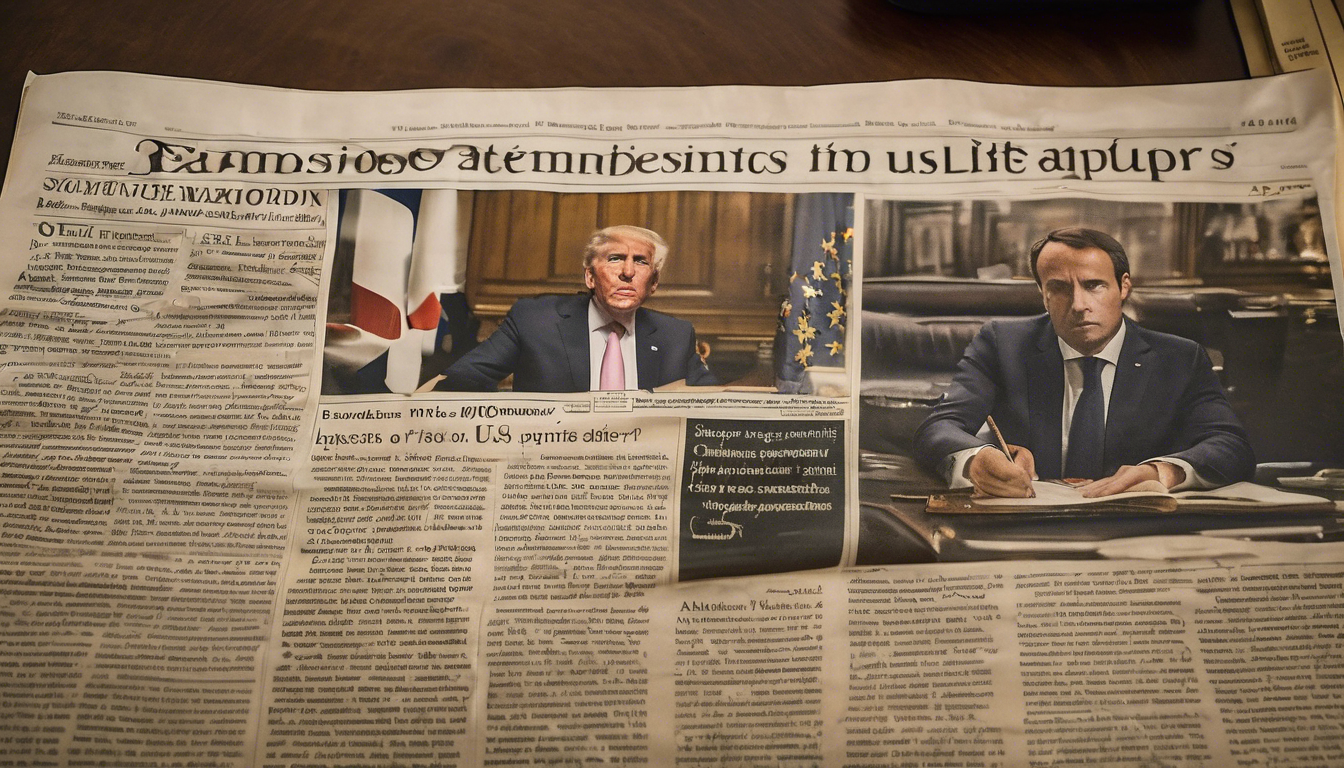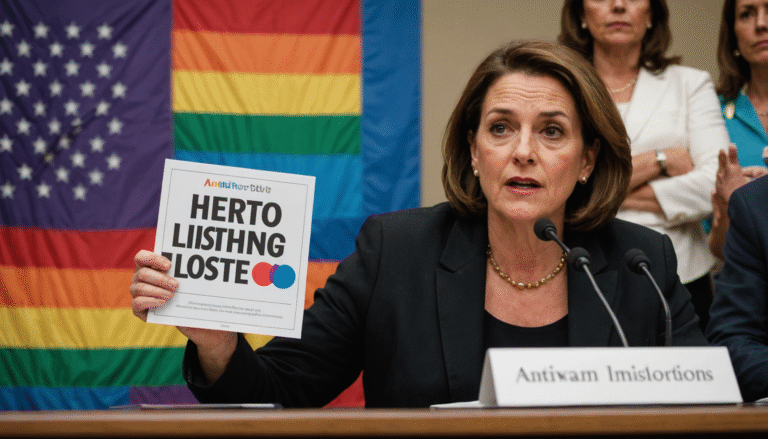
France has formally summoned US Ambassador Charles Kushner to appear before the French Ministry for Europe and Foreign Affairs following his controversial letter to President Emmanuel Macron. The letter allegedly accused France of insufficient action against rising antisemitism, prompting French officials to denounce the allegations as “unacceptable” violations of diplomatic protocol.
Background
Charles Kushner, father of former White House adviser Jared Kushner and real estate developer, serves as the current US Ambassador to France under the Trump administration. His appointment came despite a controversial past that included a federal conviction for tax evasion and illegal campaign contributions, for which he received a presidential pardon from Trump during his first term. Kushner’s diplomatic role has now thrust him into the center of a significant bilateral dispute between two key NATO allies.
The diplomatic controversy stems from a letter Kushner sent to French President Emmanuel Macron, the contents of which have not been publicly released. According to French officials, the letter contained allegations that France had not adequately addressed rising antisemitic incidents within its borders. This accusation has touched a particularly sensitive nerve in French politics, where the government has faced mounting pressure to address increasing hate crimes against Jewish communities since the October 7, 2023 Hamas attacks on Israel.
France is home to Western Europe’s largest Jewish population, with approximately 500,000 Jewish residents representing about one percent of the national population. This significant demographic has made antisemitism a critical domestic policy issue for successive French governments. The timing of Kushner’s letter coincides with heightened tensions in the Middle East and increased scrutiny of European responses to antisemitic incidents across the continent.
Key Developments

France Summons US Ambassador Over Antisemitism Letter Dispute
The French Foreign Ministry’s response was swift and decisive, issuing a public statement on Sunday announcing Kushner’s mandatory appearance on Monday. The ministry characterized the ambassador’s allegations as violations of international law and interference in France’s internal affairs. French officials emphasized that such accusations fall short of the expected standards for transatlantic partnership and the trust required between allied nations.
The diplomatic escalation represents one of the most significant formal protests between France and the United States in recent months. Key developments in this crisis include:
- France formally summoned Ambassador Kushner for Monday meeting at Foreign Ministry
- French government rejected allegations as unacceptable violations of diplomatic protocol
- Ministry accused US of interfering in France’s internal domestic affairs
- Officials emphasized full mobilization against antisemitic acts since October 2023
- White House and State Department remained silent on the controversy
The French government has strongly defended its record on combating antisemitism, asserting that authorities have been “fully mobilized” to address rising incidents since the Hamas attacks on Israel. French officials described antisemitic acts as “intolerable” and rejected any suggestion that their response has been inadequate. The formal summoning of an ambassador represents one of the strongest diplomatic protests available short of expelling the envoy entirely.
Industry and International Context
This diplomatic incident occurs against a backdrop of broader tensions in Franco-American relations during the current Trump administration. Trade disputes, disagreements over Middle East policy, and differing approaches to international organizations have created multiple friction points between the two allies. The current controversy adds another layer of complexity to an already strained bilateral relationship that has seen public disagreements on various global issues.
The timing is particularly significant given recent tensions over United Nations peacekeeping operations in Lebanon, where France and the United States have taken opposing positions. The US has pushed to wind down the UNIFIL peacekeeping mission, while France has strongly objected to this approach. A crucial UN Security Council vote on this issue is scheduled for the end of the month, making the current diplomatic dispute even more problematic for bilateral cooperation.
European nations have been grappling with rising antisemitic incidents since the October 7 attacks and subsequent conflict in Gaza. Many governments have implemented enhanced security measures for Jewish communities and increased monitoring of hate crimes. France’s response has included additional police protection for synagogues and Jewish schools, along with strengthened legal frameworks for prosecuting hate crimes. The current dispute highlights the sensitive nature of international criticism regarding domestic security policies.
Implications and Risks
The formal summoning of the US ambassador carries significant implications for broader Franco-American diplomatic relations. Such actions typically signal serious displeasure and can lead to reciprocal measures that further strain bilateral ties. The public nature of France’s protest indicates that private diplomatic channels may have failed to resolve the disagreement, suggesting deeper underlying tensions between the two governments’ approaches to addressing antisemitism and related security concerns.
For domestic French politics, the incident provides ammunition for critics who argue that foreign interference undermines national sovereignty. President Macron’s government faces ongoing pressure from various political factions regarding its Middle East policies and domestic security measures. The US ambassador’s intervention may complicate efforts to build consensus on antisemitism policies and could be exploited by political opponents to question the government’s independence from foreign influence.
The controversy also risks undermining broader transatlantic cooperation on combating antisemitism and other forms of hate crimes. International coordination has been crucial in addressing cross-border aspects of extremist movements and sharing best practices for community protection. A prolonged diplomatic dispute could hamper such cooperation at a time when many experts argue that international collaboration is essential for effectively addressing rising antisemitic incidents across Western nations.
What’s Next

France summons US ambassador — France Summons US Ambassador Over Antisemitism Letter Dispute
The immediate focus will be on Monday’s meeting between Ambassador Kushner and French Foreign Ministry officials, where the diplomat will likely face formal protests and demands for clarification of his letter’s contents. The French government may seek assurances that future communications will follow proper diplomatic channels and avoid what they characterize as interference in domestic affairs. The ambassador’s response and any subsequent statements from Washington will be closely watched for signs of escalation or potential resolution.
Both governments face pressure to prevent this incident from derailing broader bilateral cooperation on critical issues including NATO commitments, counterterrorism efforts, and ongoing international crises. Diplomatic sources suggest that behind-the-scenes efforts may already be underway to contain the dispute and find face-saving solutions for both sides. However, the public nature of the French protest makes it difficult to simply ignore the incident or resolve it through quiet diplomatic channels.
The longer-term implications may depend on whether this controversy reflects deeper philosophical differences between the two governments regarding international engagement and domestic policy autonomy. If the dispute stems from broader disagreements about appropriate diplomatic conduct and international criticism of domestic policies, it could signal ongoing tensions that extend beyond this specific incident. Alternatively, if both sides treat this as an isolated diplomatic misstep, normal relations could potentially be restored relatively quickly through appropriate diplomatic protocols and private discussions.
The diplomatic crisis underscores the delicate balance required in international relations, particularly when addressing sensitive domestic issues like antisemitism that carry both moral imperatives and political complexities. How both nations navigate this dispute may set precedents for future diplomatic interactions and the boundaries of acceptable international criticism regarding domestic policy responses to hate crimes and community security concerns.
Read More:
- Trump Targets Federal Reserve Governor in Political Attack
- VP Vance Faces Protests During DC Photo Op with Trump Nominees
- Meta AI Transforms Hiring Practices as Platform Expands Rules






